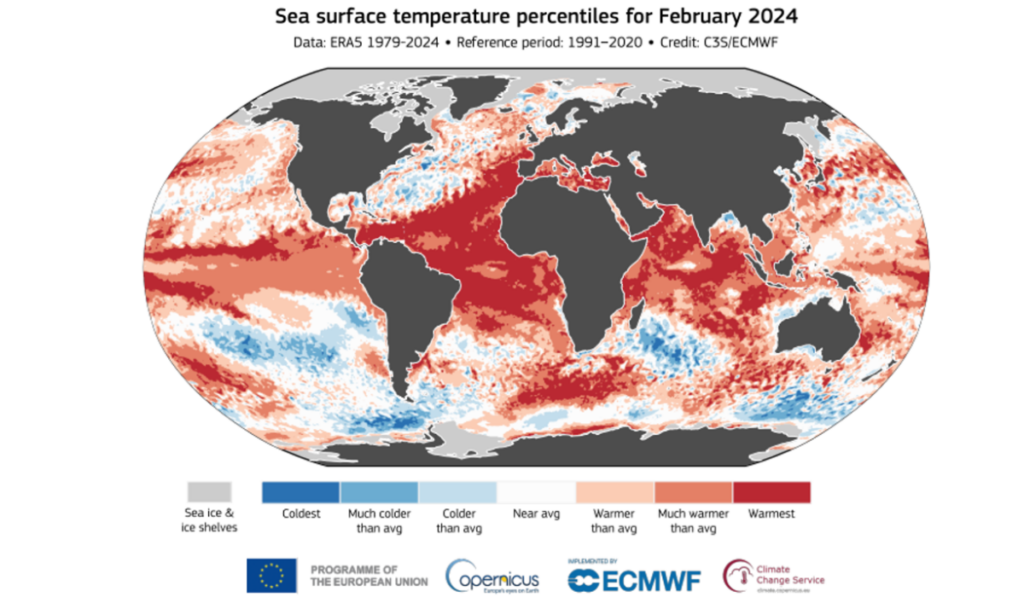The world’s ocean temperatures have reached a record high, sparking fears of the most severe mass bleaching event.
Satellite data from the European Copernicus Climate Change Service has revealed that in February, the global average sea surface temperature reached 21.06°C, surpassing the previous record set in August the previous year.
Extensive regions of the world’s oceans, notably the Atlantic and areas surrounding the UK, were notably warmer than the long-term average.
The alarming rise in ocean temperatures has prompted warnings from the US National Oceanic and Atmospheric Administration (NOAA) that coral reefs are facing an imminent threat. This marks the fourth documented mass bleaching event, wherein heat stress causes corals to expel vital algae, rendering them susceptible to disease and starvation, ultimately leading to their demise.
Derek Manzello, coordinator of NOAA’s Coral Reef Watch, expressed grave concerns, stating that the Southern Hemisphere is likely to witness widespread bleaching this year, potentially marking the most severe bleaching event in history.
“It’s looking like the entirety of the Southern Hemisphere is probably going to bleach this year. Manzello said. “We are literally sitting on the cusp of the worst bleaching event in the history of the planet.”

Additionally, data from the Copernicus Climate Change Service indicates that the global average air temperature in February also broke records, reaching 13.54°C, a significant deviation from pre-industrial estimates.
Attributed in part to a robust El Niño event, characterized by elevated Pacific Ocean temperatures, man-made climate change is accelerating at an alarming rate. Although the current El Niño is waning, scientists caution that global temperatures must be stabilized below 1.5°C above pre-industrial levels to prevent further destabilization of the Earth’s climate.


